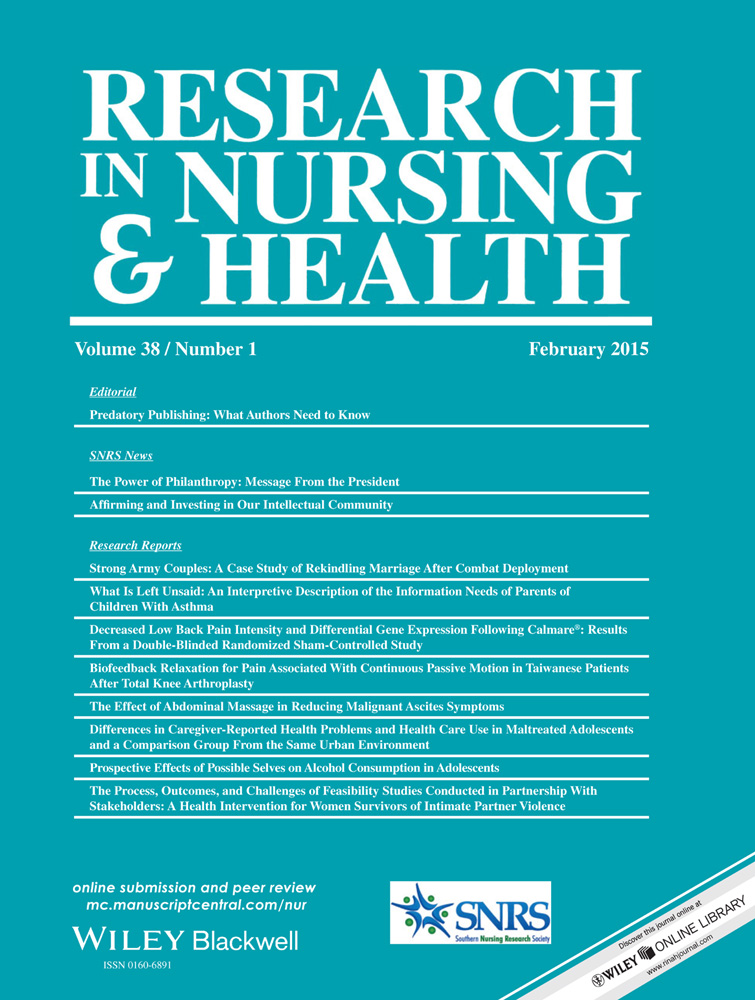What Is Left Unsaid: An Interpretive Description of the Information Needs of Parents of Children With Asthma
Correspondence to: Mandy M. Archibald E-mail: [email protected]
Abstract
Parents of children with asthma provide the vast majority of day-to-day asthma care. Understanding their information needs is an essential step to provide meaningful and effective family-centered asthma education. To gain insight into the information needs and information deficits of parents of children with asthma, we conducted an interpretive descriptive study to capture the perspectives of 21 parents from diverse backgrounds whose 23 children with asthma had a range of illness trajectories and management scenarios. Parents were purposively sampled from two asthma clinics and one pediatric emergency department in a large urban center in North America. Semi-structured interviews were conducted in 2011–2012. In data analysis, parents’ self-identified information needs were distinguished from analysts’ interpretations of information deficits. Participants’ knowledge did not always reflect time since diagnosis, and information needs and deficits persisted for years. Parents often reported receiving little or no little or no education about asthma and its management. An asthma management information hierarchy was identified, starting with the most foundational, recognizing severity; followed by acute management; prevention versus crisis orientation; and knowing “about” asthma. In the absence of adequate and accurate education, parents’ beliefs about the nature of asthma as an acute rather than chronic condition shaped their asthma management decisions and information-seeking behaviors. Information deficits were affected by interactions with health care providers. These parents’ pervasive unmet information needs and deficits highlight the need for comprehensive, problem-oriented asthma education. © 2015 Wiley Periodicals, Inc.




